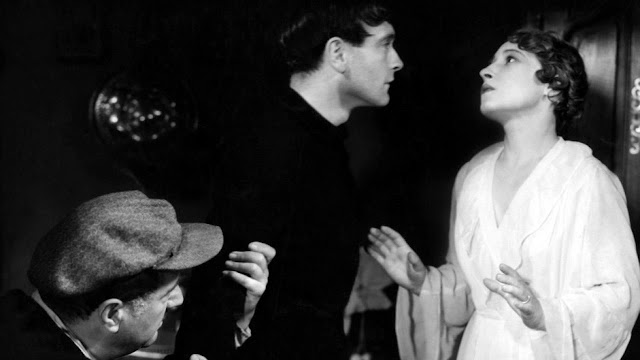Fanny (1932)
Marc Allegret's "Fanny"
The direct sequel to the 1931 French success, "Marius," 1932's "Fanny" sees our characters and their dilemmas after the consequences of the prior film. The film continues in its complex examination of the lives of these everyday Marseille citizens. Marcel Pagnol continues in his role of screenwriter, while the role of director has been changed to Marc Allegret.
After Marius leaves for years to travel the seven seas, Fanny and Cesar are left with the fallout of Marius' departure. Fanny is now pregnant and must marry Honore Panisse to both economically support her child, as well as give him a family name. After several years of Panisse fathering the child, Marius returns and expects Fanny and his son to be handed back to him. However, in the climactic final scene, it is explained to Marius that he chose to leave his fiancé and thereby, his son, behind. Because of this, his entrance into his son's life would only make matters worse.
"Fanny" and this continuing story is an emotional one. Because of the time spent with these characters, there is a certain intimacy with the audience. Because of this, every decision that is made is utterly consequential to their lives and the rest of the film. These consequences resonate and leave an emotional impact. There are elements of this film that are more engaging than "Marius," as the stakes have gotten higher. In the previous film, Marius' happiness, along with the happiness and well-being of his family were at stake. In this film, the introduction of the baby introduces a whole new perspective on Marius' original decision. In the first film, one might have been rooting for Marius to escape Marseille and live out his dream, despite leaving Fanny and Cesar in the dust. However, "Fanny" reflects on this decision as being incredibly costly, not only to Fanny and her child, but to Marius and what he is missing out on.
Overall, the film offered some emotional connection with characters I've come to know. I assume the last film of this trilogy, 1936's "Cesar" will be an equally emotional farewell.




Comments
Post a Comment